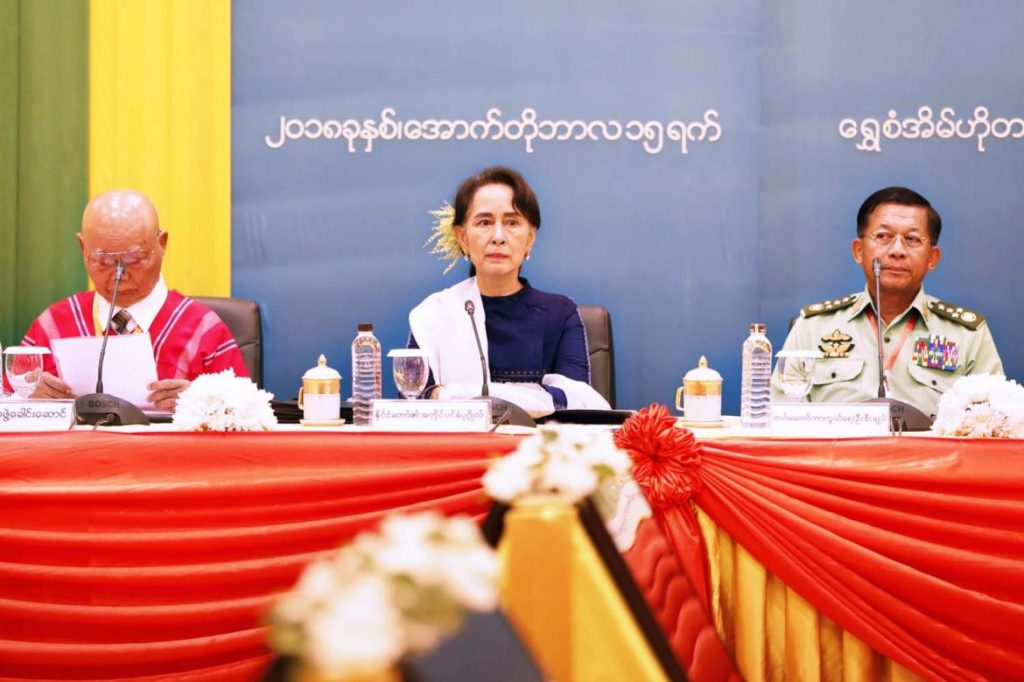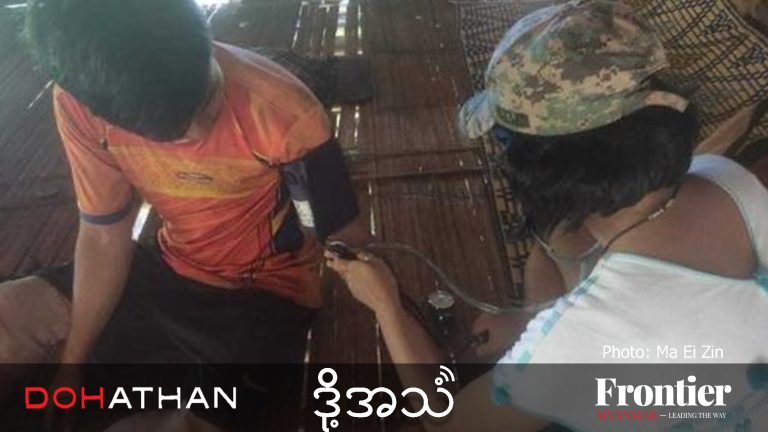A meeting in northern Shan State has raised hopes for ending conflict but the government and Tatmadaw will need to compromise for the peace process to regain momentum.
By SITHU AUNG MYINT | FRONTIER
A MEETING with important implications for the peace process took place at Muse, on the border with China in northern Shan State, on April 30. It brought together representatives of the government and the four ethnic armed groups that comprise the Northern Alliance. Also present was China’s special envoy for Asian affairs, Mr Sun Guoxing, who held separate meetings with each side.
In a statement after the talks, the government said they had led to improved understanding between the parties and enabled progress to be made. A further meeting is planned later this month. The Tatmadaw also said the meeting showed positive signs and announced that its unilateral ceasefire in Kachin and northern Shan states would be extended for another two months, to June 30. The meeting and the government’s statement suggest that progress is being made in the peace process, but is it genuine and what more needs to be done?
The government, represented in Muse by the National Reconciliation and Peace Centre, met collectively with all member organisations of the Northern Alliance, which are the Kachin Independence Organisation (political wing of the Kachin Independence Army), United League of Arakan (Arakan Army), Myanmar National Truth and Justice Party (Myanmar National Democratic Alliance Army), and Palaung State Liberation Front (Ta’ang National Liberation Army).
The government’s objective in holding the meeting was to persuade the four groups to sign the Nationwide Ceasefire Agreement. Instead, the Northern Alliance proposed a phased approach in which each of the four groups would sign a bilateral ceasefire as the first phase. The KIO also said it was prepared to cooperate with the Tatmadaw to enable the return to their homes of more than 100,000 civilians displaced by conflict and living in camps in Kachin and northern Shan.
Support more independent journalism like this. Sign up to be a Frontier member.
A draft bilateral ceasefire agreement was presented by the Northern Alliance to the government at the meeting. Generally, the government does not refuse to sign bilateral ceasefire agreements. However, after studying the draft at the meeting it asked that a clause be added that commits the Northern Alliance members to signing the NCA within a certain period after they ink a bilateral ceasefire. This request will be negotiated when the two sides meet again.
The Tatmadaw’s unilateral ceasefire does not apply in Rakhine State, where fighting with the Arakan Army has intensified since the start of the year. Clashes have reportedly included the use of fighter jets and helicopter gunships by the Tatmadaw and have displaced nearly 30,000 civilians.
In a joint statement on April 24, the ULA, MNDAA and PSLF had issued an ultimatum to the Tatmadaw to cease hostilities against the Arakan Army. They said that if the Tatmadaw continued to exclude Rakhine from its unilateral ceasefire, as it did in its April 30 announcement, it was possible that fighting might resume in their areas. If this happened, it would be a setback for the peace process.
The Muse meeting came as one of the most important signatories to the NCA, the Karen National Union, continued to suspend involvement in the peace process. The process cannot resume until this is resolved. Prospects for another 21st Century Panglong Peace Conference any time soon are dim.
In another development, the nation’s biggest ethnic armed group, the United Wa State Party, showed off its military muscle at celebrations marking its 30th anniversary. The celebrations, in Panghsang, the main city in Wa-controlled territory, featured a parade by the United Wa State Army that included artillery, anti-aircraft rocket launchers and drones. The UWSP, which signed a bilateral ceasefire with the military junta on May 9, 1989, was sending a message that it was prepared to defend itself. The UWSP won’t sign the NCA without guarantees that the considerable autonomy it enjoys will be preserved. The group thinks the NCA in its current form would require it to surrender its weapons.
All things considered, the potential for peace is not encouraging. As far as NCA signatories and non-signatories are concerned, the peace process is at a standstill. This is a disappointment, because there was a time when the process was moving forward. If the government and the Tatmadaw really want peace they need to be prepared to make compromises.
The Tatmadaw should declare a national ceasefire and accept the KIO’s proposal for a bilateral ceasefire and to help communities displaced by conflict to return home. For its part, the government needs to ensure that ethnic nationalities and the states enjoy the rights granted them under the 2008 Constitution and within this framework establish a genuine federal union. There also needs to be a greater effort to bring peace and stability to the territory of NCA signatories to facilitate development. Commitments to pragmatic solutions for ending conflict are essential for progress to be made in the peace process.







